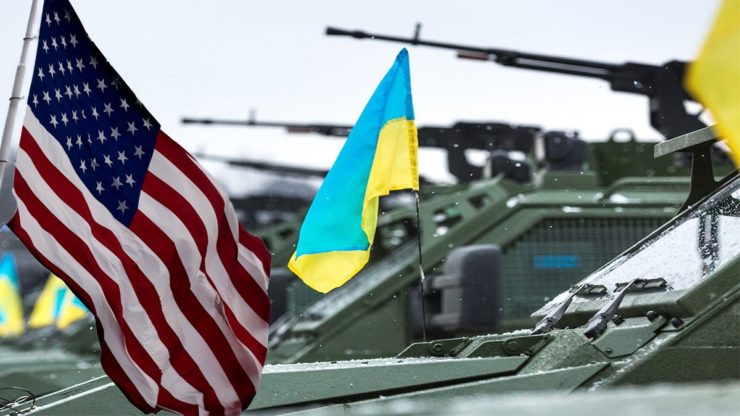
Long gone are Western headlines heralding Ukraine’s NATO-trained and armed forces and the prospects of them able to “sweep Putin’s conscripts aside,” as former British Army Colonel Hamish De Bretton-Gordon claimed in an article published as recently as June this year.
As Ukraine’s offensive forces broke across extensive Russian defenses all along the line of contact from Zaporozhye to Kharkov, the realization that Washington, London, and Brussels underestimated the Russian Federation economically, politically, diplomatically, and most importantly, militarily and industrially, began to set in.
Russian Military Production Grows, Western Stockpiles Dry Up
Today, different kinds of headlines now appear across the collective West’s media. The New York Times recently reported in an article titled, “Russia Overcomes Sanctions to Expand Missile Production, Officials Say,” that Russia ammunition production was at least seven times greater than the collective West.
The same article acknowledged that Russia had increased its tank production two-fold and was producing 2 million artillery rounds per year, a number that is larger than the combined planned expansion of shell production of the US and European Union some time between 2025 and 2027. Not only is Russia out-producing the West, it is producing weapons and ammunition at a fraction of the cost of Western arms and munitions.
As Russian military industrial production expands, producing more tanks, artillery, cruise missiles, and ammunition for the ongoing special military operation in Ukraine, Ukrainian forces find their sources of arms and ammunition drying up.
The BBC would report in a recent article, “Poland no longer supplying weapons to Ukraine amid grain row,” that:
One of Ukraine’s staunchest allies, Poland, has said it is no longer supplying weapons to its neighbour, amid a diplomatic dispute over Kyiv’s grain exports.
Prime Minister Mateusz Morawiecki said Poland’s focus was instead on defending itself with more modern weapons.
While both Poland and the BBC attempt to frame the decision as motivated by growing tensions between Poland and Ukraine, the reality is Poland had a finite amount of expendable arms and ammunition it could send Ukraine, and it has expended those stocks. This leaves a much smaller number of more modern systems Poland has acquired for its own defense. Neither Poland nor its foreign arms suppliers produce weapons and ammunition in the quantities required to sustain Ukrainian forces on the battlefield, meaning that should Poland continue supplying Ukraine from this point forward, it will eventually find itself “demilitarized.”
Other nations are failing to deliver much anticipated weapon systems. This includes the ATACMS ballistic missile Ukraine has demanded from the United States for months now, and despite claims of its arrival being imminent, Reuters in a recent article has ruled them out once again ahead of the Pentagon’s next assistance package.
Germany’s air-launched cruise missile, the Taurus, has also failed to turn up in additional assistance packages. Bloomberg in its article, “Germany Plans Additional $428 Million in Military Aid to Ukraine,” noted that Berlin is still weighing “a multitude of political, legal, military and technical aspects,” before finally sending any.
It should be noted that neither missile, along with a wide array of other so-called “wonder weapons,” has any prospect of changing the outcome of the fighting in Ukraine. While the missiles, if delivered, will result in tactical victories for Kiev, they will have little to no impact on the fighting strategically.
What remains of Western military assistance to Ukraine is inadequate amounts of ammunition, older and/or increasingly inappropriate armored vehicles including relics of the Cold War like the Leopard 1 main battle tank, and “training” for Ukrainian soldiers conducted in compressed timelines producing entirely unprepared soldiers almost certain to perish within days of arriving at the battlefield.
The US-led proxy war against Russia in Ukraine is unsustainable, and it appears many in the halls of power across the collective West are coming to grips with that.
Delusion Persists
However, elsewhere in the Western media, a deep sense of delusion is still reflected in articles that, despite admitting Ukraine’s failures, believe a “rethink” of Ukraine’s military strategy could help win what is obviously transforming into a “long war.”
For example, The Economist in its article, “Ukraine faces a long war. A change, of course, is needed,” admits the long-anticipated offensive “is not working,” but goes on to demands more offensive and defensive capabilities for Ukraine, including additional air defense systems and “reliable supplies of artillery,” both of which objectively do not and will not exist in the necessary quantities Ukraine requires for years to come.
At one point in the article, The Economist insists on Europe “beefing up its defense industry,” apparently oblivious to the lead times involved in doing so being measured in years – years Ukraine does not have.
The collective West apparently realizes their plans are failing to end the war in their favor sooner rather than later, but appear unaware that the “long war” they now realize awaits them is beyond their capability to fight by proxy or otherwise. The proxy war, designed to “extend Russia,” is now making Russia stronger militarily and industrially. At the same time, the conflict and the sanctions the West imposed on Russia are serving as a catalyst for other nations to pivot away from the US-led unipolar world and instead invest in a multipolar alternative, fearing that eventually the West may target them in a similar manner.
It is clear that the harder the collective West attempts to place Ukraine in a stronger position at the negotiation table, the weaker Ukraine and its Western sponsors become. The longer this conflict continues, the worse it will be for Ukraine and its sponsors. For the collective West, winning their proxy war is impossible militarily and industrially, but accepting this reality appears equally impossible for the collective West’s leadership psychologically.
Brian Berletic is a Bangkok-based geopolitical researcher and writer, especially for the online magazine “New Eastern Outlook”.